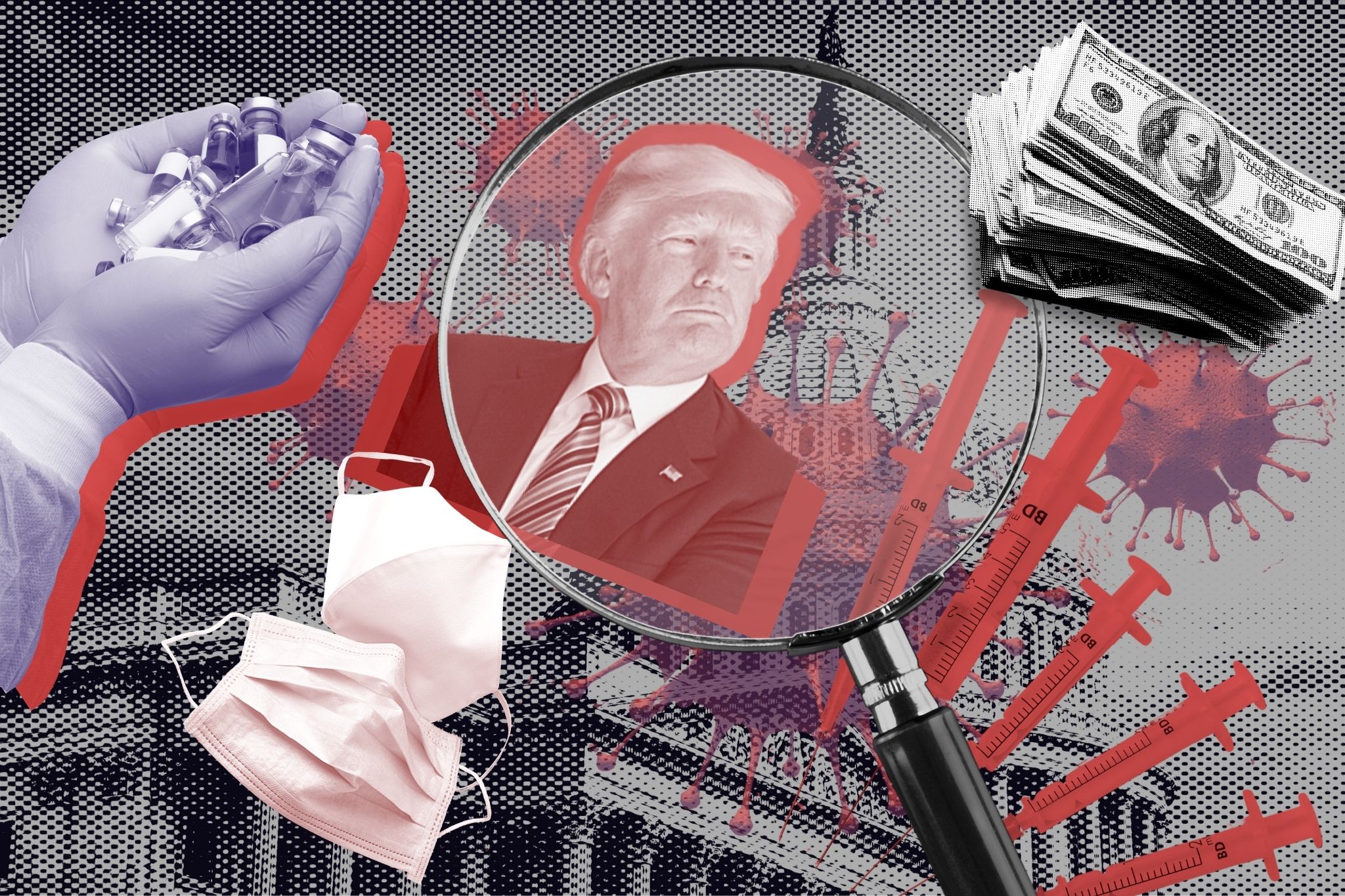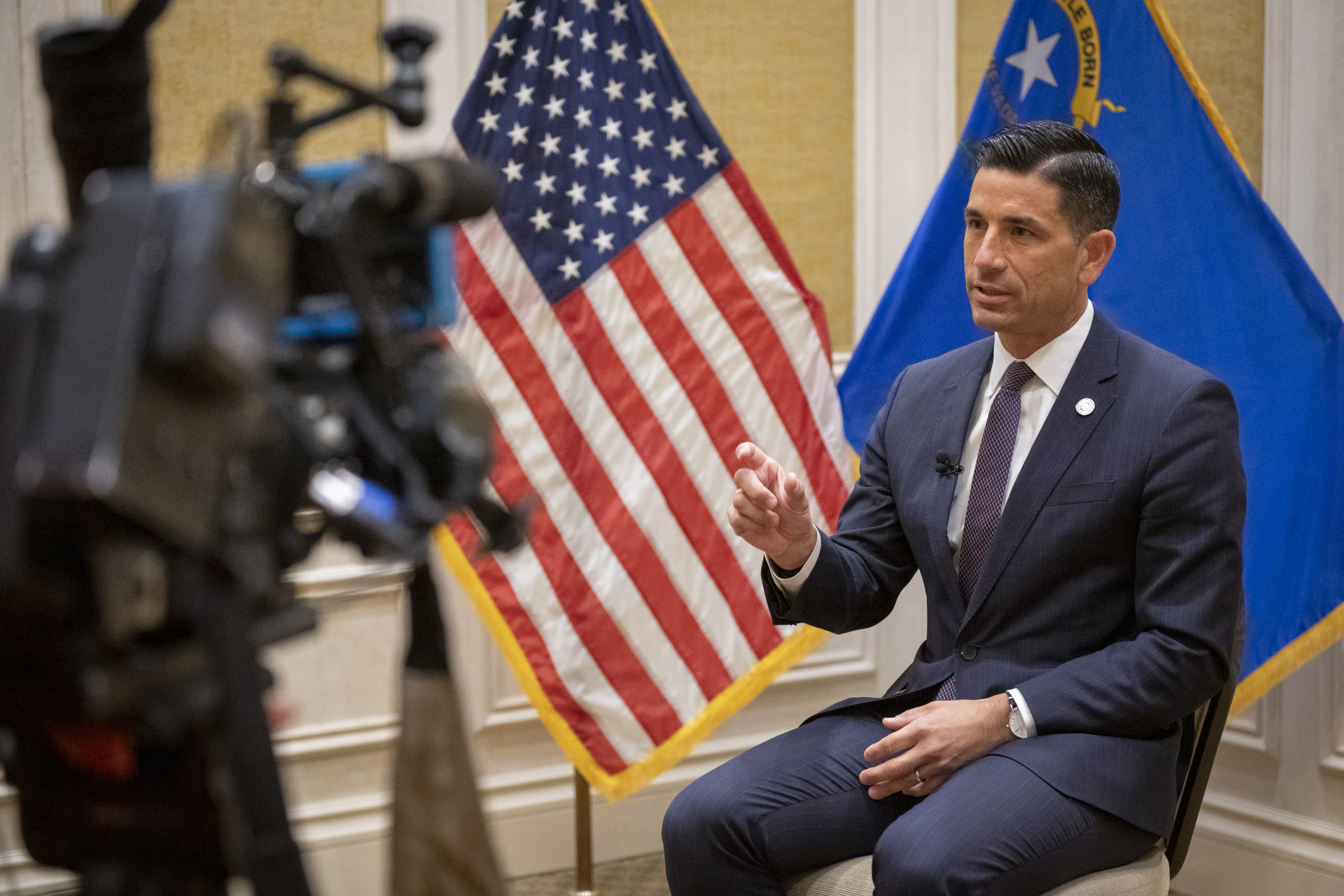
The Federal Government’s Pandemic Information-Sharing Systems
The federal government partnered with various private entities to develop systems to track pandemic-related data, from Covid-19 hospitalizations to vaccine supply. American Oversight is investigating the public-private partnerships behind these systems.

Much was said about the Trump administration’s reliance on well-connected private companies providing crucial medical equipment and supplies during the early months of the pandemic. The private sector, however, also played a major role in developing data-tracking and information-sharing systems meant to streamline crucial information at every point of the pandemic response. These systems repeatedly fell short of their stated goals, frustrating state officials and intensifying confusion. Many of them remain the tools available to the Biden administration as it attempts to patch together a disjointed pandemic response.
In July 2020, White House Coronavirus Task Force Coordinator Dr. Deborah Birx upended the existing hospital data system to create “HHS Protect.” Rather than reporting Covid-19 data directly to the Centers for Disease Control and Prevention, as hospitals had been doing since March, medical professionals were publicly directed to send data to the Department of Health and Human Services. The data was collected and aggregated by private contractors TeleTracking Technologies and Palantir, the latter of which has faced criticism for working with Immigration and Customs Enforcement to track immigrants.
The new system experienced a multitude of problems and even included data that contradicted state-reported hospital data. Science magazine reported that untrustworthy numbers minimized the system’s efficacy, with one CDC source saying, “The HHS Protect data are poor quality, inconsistent with state reports, and the analysis is slipshod.” It was not until December 2020, nearly six months after its rollout, that public health experts felt HHS Protect had stabilized and was consistently relaying accurate information.
Despite those stumbling blocks, the Trump administration teamed up with Palantir again in the fall, this time to create Tiberius, a data-tracking platform that was meant to track Covid-19 vaccines from manufacturing to storage to distribution. But in February 2021, Politico reported that the system’s submission process was cumbersome and confusing, leading to long data lags and sometimes contradictory information.
The massive vaccine data-tracking effort that Tiberius was designed to monitor also raised privacy concerns. In December 2020, the New York Times reported that the CDC required states to submit personal data of those who received the Covid-19 vaccines — a practice that could discourage undocumented people from being inoculated and have broader privacy implications. Trump administration officials said personal identifiers would be removed before CDC and HHS officials could view the data, but state officials have raised concerns about sharing such information with the federal government because of uncertainty over how that information would be handled.
The CDC also contracted with Deloitte to create the Vaccine Administration Management System, a front-facing service that was envisioned as a “one-stop shop” where individuals could schedule inoculations and state officials and clinics could report doses. ProPublica and American Oversight obtained copies of the contracts with Deloitte, including the contract signed in May for nearly $16 million and a contract signed in December for $28 million. However, state officials encountered system-wide difficulties, including randomly canceled appointments, unreliable registration, and clinic staff being locked out of the dashboard. The unreliability led to many states abandoning the system and attempting to build alternative systems, all while attempting to distribute millions of doses of vaccines.
American Oversight is investigating these information-sharing systems and is seeking information about the private-public partnerships that created them. We’ve sent requests to HHS seeking the daily reports created by HHS Protect and have asked the CDC for contracts and update reports from Deloitte. We’re also investigating communications between state health departments and surveillance companies who offered to assist in the pandemic response.



